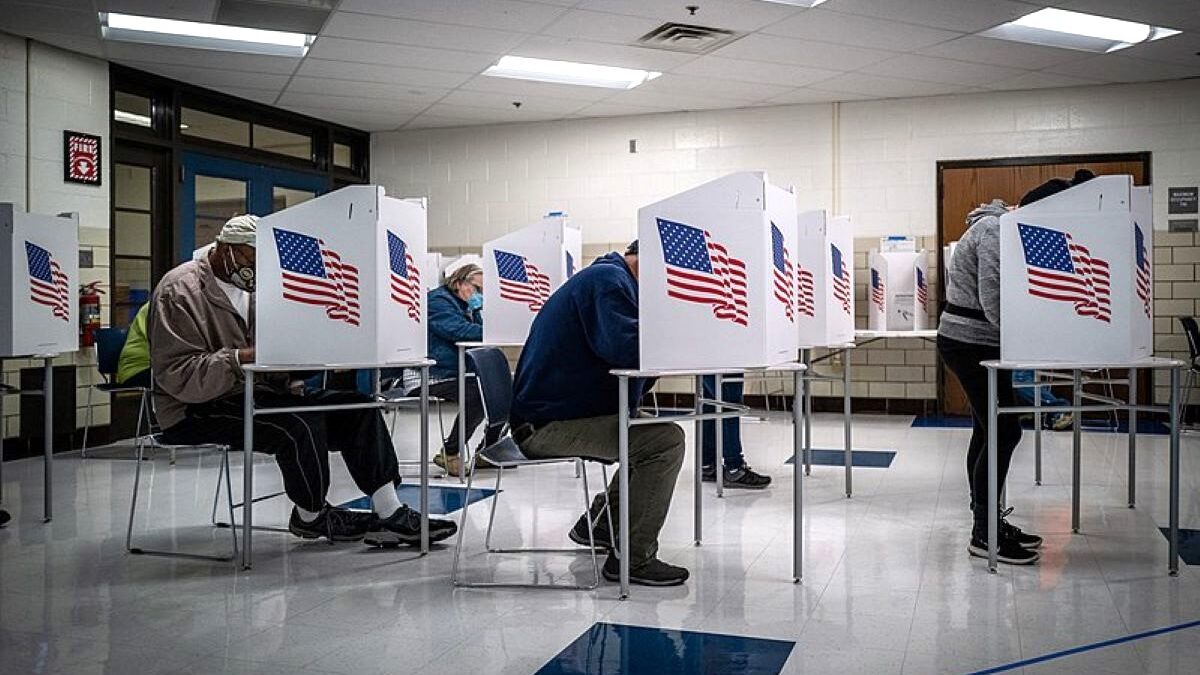
North Carolina and Florida Republicans chalked up major wins last week after a series of court rulings upheld their respective election integrity efforts.
On Friday, the North Carolina Supreme Court overturned its previous decision banning gerrymandered districting in the state. Last year, the court’s then-Democrat majority (4-3) “threw out a state Senate map from the Republican-led state legislature and maintained congressional boundaries that had been drawn up by trial judges.” After Republicans won the state’s two Supreme Court races during the 2022 midterms, the high court’s new conservative majority (5-2) opted to rehear the case earlier this year.
“In its decision today, the Court returns to its tradition of honoring the constitutional roles assigned to each branch,” wrote Chief Justice Paul Newby in Friday’s decision. “This case is not about partisan politics but rather about realigning the proper roles of the judicial and legislative branches. Today we begin to correct course, returning the judiciary to its designated lane.”
In December, the U.S. Supreme Court heard arguments in Moore v. Harper, a case pertaining to the North Carolina redistricting fiasco. As The Federalist’s Margot Cleveland reported, the justices will ultimately decide whether a state court has the ability to usurp the constitutional power of state legislatures and “impose its own map for congressional districts drawn after the decennial census.”
[READ: In Moore v. Harper, SCOTUS Could Decide Who Gets The Final Say In A 2024 Election Dispute]
In addition to gerrymandering, the North Carolina Supreme Court also issued separate rulings upholding a previously passed voter ID law and overruling a trial court decision that permitted convicted felons on probation or parole to vote. In December 2018, the GOP-controlled General Assembly passed a bill mandating citizens show a form of valid ID when voting several weeks after North Carolina voters approved a photo ID constitutional ballot initiative.
In September 2021, a trial court struck down the 2018 statute, repeating the false claim that such laws discriminate against racial minorities. The then-Democrat-controlled Supreme Court affirmed the trial court’s ruling in December. Much like with its prior gerrymandering ruling, the high court’s new Republican majority decided to rehear the case.
According to The News & Observer, a local news outlet, acceptable forms of valid voter ID include a U.S. passport, an unexpired North Carolina driver’s license, a local or state government employee ID card, or a state voter identification card.
Legal Victory for Florida Republicans
Meanwhile, Florida Republicans scored a major victory for election integrity last week after a federal appeals court upheld a 2021 law aimed at enhancing security procedures regarding the use of mail-in ballots and ballot drop boxes. On Thursday, the U.S. Court of Appeals for the 11th Circuit ruled in a 2-1 decision that the March 2022 ruling by U.S. District Judge Mark Walker — an Obama appointee — was severely flawed.
In his decision, Walker alleged that Florida lawmakers demonstrated “intent to discriminate against Black voters” and asserted that the statute is “the stark result[] of a political system that, for well over a century, has overrepresented White Floridians and underrepresented Black and Latino Floridians.” The appeals court disagreed, writing that “the findings of intentional racial discrimination rest on both legal errors and clearly erroneous findings of fact.”
The court further admonished Walker’s faulty legal analysis, particularly his error in claiming that “a racist past is evidence of current intent.”
“Under our precedent, this history cannot support a finding of discriminatory intent in this case. Florida’s more recent history does not support a finding of discriminatory intent,” wrote Chief Judge William Pryor.
Notably, Walker is also the judge tasked with overseeing Disney’s ongoing lawsuit against Florida Gov. Ron DeSantis.









